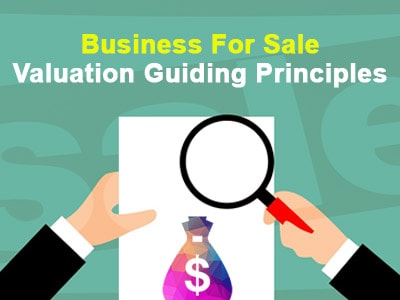Businesses Up for Sale Are Best to Follow the Guidelines to Get the Best Selling Price

All Financial Statements in Place
First things first, get all your financial statements ready and in shape. You would need three years’ worth of statements such as cash flow statement, income statement and balance sheet. If your business is younger than that or is not operational in the past three years, you can use a projection model. Next, turn that income statement into a seller’s discretionary earnings statement or SDE. An SDE contains non-recurring purchases and discretionary expenses. This process could be emotional for you as a seller. But if you want a correct reflection of your business value, your emotions must be put aside.
The Business’ Asset Value
Over time, your business would purchase items to improve efficiency. The physical improvements are tangible assets of the company. The intangible assets of the trade include intellectual property, brand recognition, contracts, and partnerships. Estimate both tangible and intangible assets of the business. Asset valuation is a method to give you a better picture of your business value. However, most buyers are interested in the business’s potential. Hence, the next move is to use price multiples.
Price Multiples Tool
It is a handy tool for interested business buyers to get an estimate of the business for sale. In this case, you have come to an estimation of your business’ assets value. Now you need to identify a multiple that you can apply to the type of industry and geographic region. You will reach a set of numbers that will combine into an equation. The result is a fair estimate of your business selling price. You might find it challenging to find the correct multiplier as it has a broad spectrum of variants.
Comparing With Others
Comparing is only suitable when you are trying to sell your business. Looking at other business for sale that is similar to yours, you get an idea of what is it worth. Comparable businesses data is available online from several sources. You can also get more data from business brokers as they have had the experience of buying and selling businesses. There are many factors which you can narrow down your search from industry to location, to gross income and cash flow.
Increasing Value
All this work is only to get you an estimated value of your business. If you finally get a number that you are not satisfied with, there are many ways to get a better figure. One way is to have documented proof of business growth. Secondly, buyers would agree to your price if your business operations are smooth. This includes compliance with safety and health regulations, renewable leases, good employee policies, staff with transferable contracts, orderly supplier lists, and established clientele. If you could agree to finance the sale partially, you could advertise your business for sale at a higher price, and to a broader range of potential buyers.
Get Professional Help
If you are still unsatisfied with your homework so far, hire a professional business broker. Brokers can provide you with a fair assessment of your business. Having them on board earlier in the process is highly commendable. Their experiences and expertise will help dispose seller’s sentiment and align the business value with the latest market conditions.








